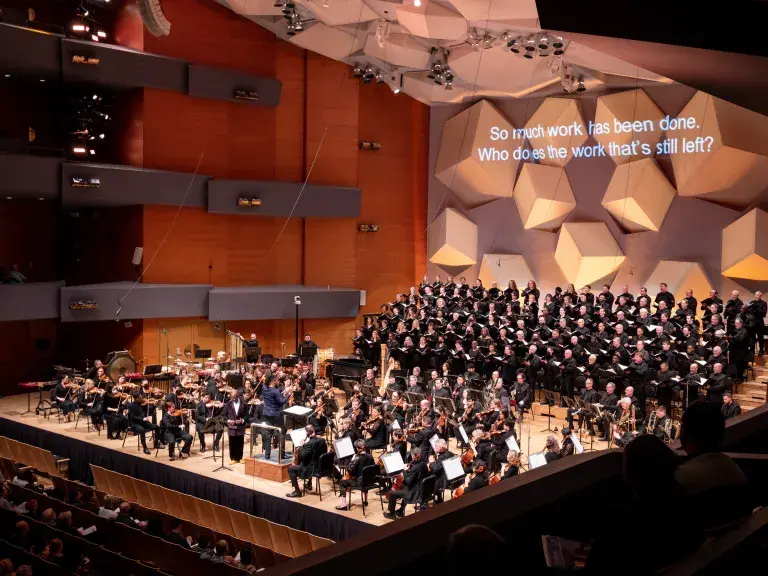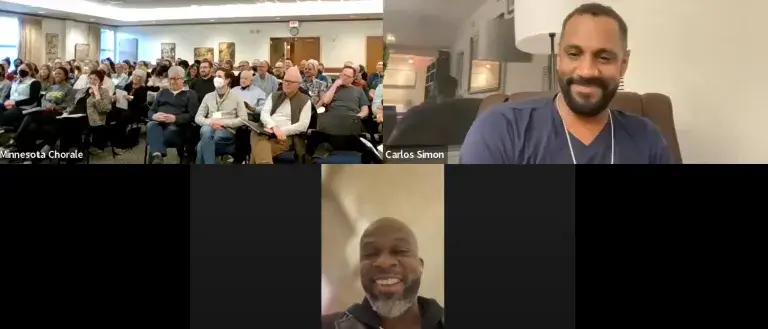
This was the case with brea(d)th, a piece for chorus, orchestra, and spoken word artist that was premiered in May 2023 by the Minnesota Orchestra, Minnesota Chorale, and 29:11 International Exchange. The piece, commissioned by the Minnesota Orchestra, was co-written by Carlos Simon (composer) and Marc Bamuthi Joseph (librettist and spoken word performer in the premiere performances). As Simon and Joseph write in the Artist Statement, brea(d)th is “a classical work, inspired by the enduring presence of George Floyd the Ancestor, asking America to consider an equitable future.” It’s worth taking 36 minutes to listen to the piece (available to stream from the Minnesota Orchestra's website), not just for its musical merits—which are numerous—but also for its powerful and poignant encapsulation of the centuries-long pursuit of racial equality in the United States.
I was in my final semester of doctoral studies with Kathy Saltzman Romey at the University of Minnesota. As was custom, I was fortunate to serve as Romey’s assistant as she prepared the Minnesota Chorale for their collaboration with the Minnesota Orchestra. In addition to the usual premiere-related unknowns (How long and what does the chorus sing? What forces and skills will be required? When will we get to see the score?!), the emotional weight of performing this work in Minneapolis could not be underestimated. Orchestra Hall is a few miles from where George Floyd was murdered in broad daylight in 2020, and across the street from where Amir Locke was murdered in his sleep in 2022. Both Black men were killed by members of the Minneapolis Police Department in a state with a troubling history of racial violence on behalf of law enforcement. We questioned how to allocate time between learning the piece and understanding its context, the positionality of the Chorale as a predominantly White chorus, and the role of the chorus within the entirety of the work.
The title brea(d)th contains three words that encompass the thrust of the work: bread, referring to monetary value and value in general; breath, an essential element for living; and breadth, which represents what Joseph refers to as “the radius of American promise” and the ideals of equality and liberty for all people. The role of the chorus is a major one, despite the relatively small amount of singing it does. At times, the chorus is part of the orchestra and adds additional depth to the sonic texture. At other times the chorus echoes short phrases delivered initially by the spoken word artist and amplifies them through repetition, tessitura, and volume. The chorus becomes, in a sense, a voice of conscience that broadcasts private, internal thoughts regarding the struggles for equality into the public space. Texts like “So much work has been done. Who does the work that’s still left?” and “May we feast on the bread that brought us one more day to get it right” demand a deeper engagement from singers than much of the symphonic repertoire ensembles like the Chorale perform on a regular basis. Finally, the visual and sonic impact of a large chorus singing these words is impossible to dismiss.


